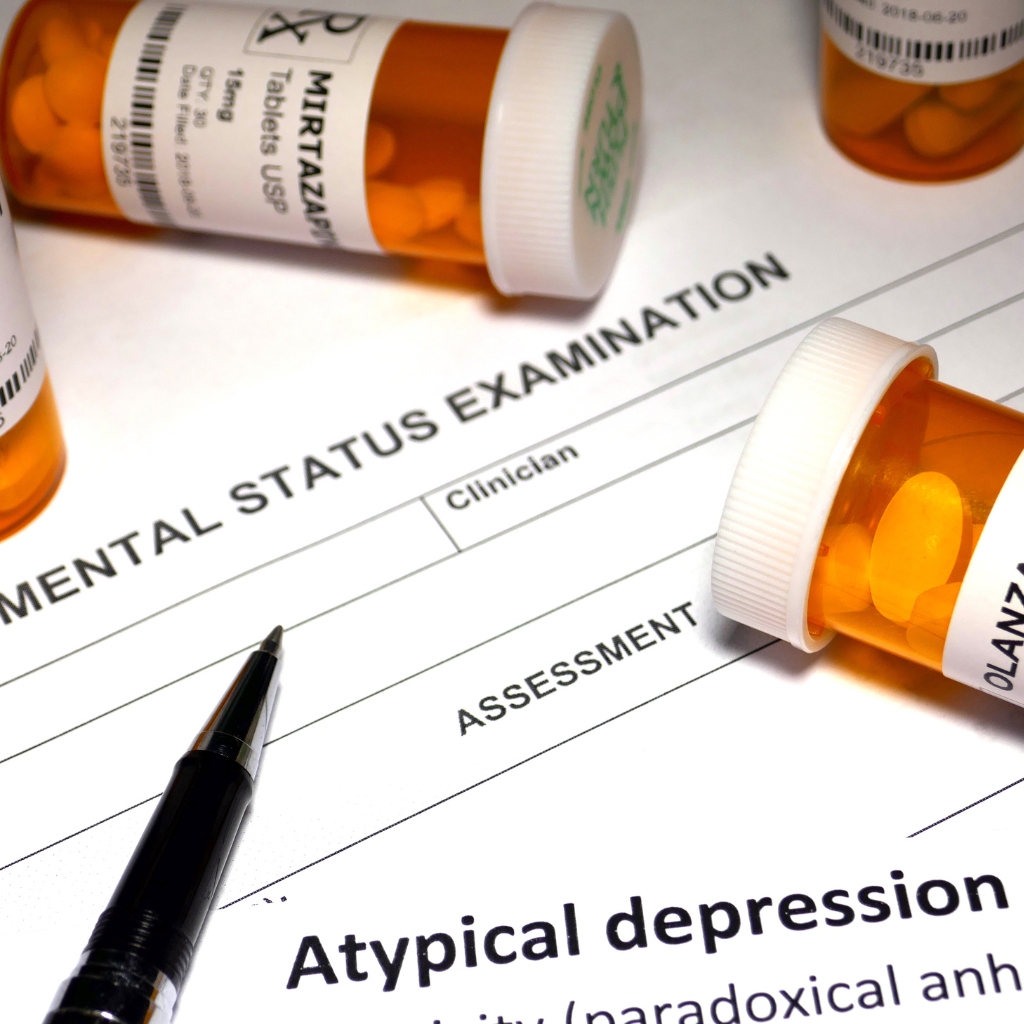Depression Treatment Simplified: How LAIs and TMS Reduce the Burden of Daily Medications

Caleb Whitenack, MD

Living with depression is challenging enough without the added stress of remembering daily medications. For many, especially those with treatment-resistant depression (TRD) or adherence difficulties, traditional antidepressants may not suffice. Fortunately, innovative treatments like Transcranial Magnetic Stimulation (TMS) and Long-Acting Injectables (LAIs) offer promising alternatives.
Understanding the Limitations of Daily Antidepressants
Traditional antidepressants, while beneficial for many, have notable limitations:
- Adherence Issues: Approximately 50% of patients discontinue their antidepressant medications within the first three months, often due to side effects or perceived ineffectiveness.
- Delayed Onset: Antidepressants typically require several weeks to exhibit therapeutic effects, which can be discouraging for patients seeking immediate relief.
- Side Effects: Common adverse effects include weight gain, sexual dysfunction, and gastrointestinal disturbances, leading some to abandon treatment prematurely.
These challenges underscore the need for alternative treatments that are both effective and easier to adhere to.

Transcranial Magnetic Stimulation (TMS): A Non-Invasive Alternative
Transcranial Magnetic Stimulation or TMS is an FDA-approved, non-invasive procedure that uses magnetic fields to stimulate specific areas of the brain associated with mood regulation. It’s particularly effective for individuals who haven’t responded to traditional antidepressants.
How TMS Works
During TMS therapy, an electromagnetic coil is placed against the patient’s scalp, repetitively delivering magnetic pulses that stimulate nerve cells in the brain’s mood centers. This stimulation can enhance neuronal activity and alleviate depressive symptoms.
Efficacy and Benefits
- High Success Rates: Studies indicate that approximately 50-60% of patients experience significant improvement, with about one-third achieving full remission.
- Minimal Side Effects: Unlike medications, TMS doesn’t cause systemic side effects. Some patients may experience mild scalp discomfort or headaches during sessions.
- No Daily Commitment: TMS sessions are typically conducted five times a week over seven weeks, eliminating the need for daily medication intake.
Considerations
While TMS is effective, it’s essential to note that the treatment requires multiple sessions. However, for those seeking a non-pharmacological approach, TMS presents a viable option.
Long-Acting Injectables (LAIs): Sustained Relief Without Daily Pills
Long-Acting Injectables or LAIs are injectable forms of medication administered at intervals ranging from two weeks to several months. They ensure consistent medication levels in the body, reducing the risk of relapse due to missed doses.
Advantages of LAIs
- Improved Adherence: By eliminating the need for daily pills, LAIs enhance treatment adherence, especially in patients with memory issues or those who struggle with routine.
- Reduced Relapse Rates: Consistent medication levels help maintain mood stability, decreasing the likelihood of depressive episodes.
- Convenience: Fewer dosing requirements mean less disruption to daily life, making it easier for patients to maintain their treatment regimen.
Clinical Evidence
Research has shown that patients on LAIs have fewer hospitalizations and emergency visits compared to those on oral medications. This suggests that LAIs not only improve adherence but also enhance overall treatment outcomes.
Considerations
While LAIs offer numerous benefits, they may not be suitable for everyone. Some patients may experience injection site reactions, and the initial transition from oral medications requires careful monitoring. It’s crucial to consult with a healthcare provider to determine if LAIs are appropriate for your treatment plan.
Making Informed Decisions About Depression Treatment

Choosing the right treatment for depression is a personal decision that should be made in collaboration with a healthcare provider. Factors to consider include the severity of symptoms, previous treatment responses, lifestyle, and personal preferences.
Key Takeaways
- TMS: Ideal for those seeking non-invasive, medication-free treatment options.
- LAIs: Beneficial for individuals who have difficulty adhering to daily medication regimens.
Always consult with a mental health professional to explore these options and determine the most suitable treatment plan.
Final Thoughts
Depression is a multifaceted condition, and its treatment should be equally nuanced. Innovative therapies like TMS and LAIs provide alternatives to traditional daily medications, offering hope to those who have struggled with adherence or inadequate responses. By understanding these options and working closely with healthcare providers, patients can find effective strategies to manage their depression and improve their quality of life.
Responsibly edited by AI
Other Blog Posts in
Animo Sano Psychiatry is open for patients in North Carolina, Georgia and Tennessee. If you’d like to schedule an appointment, please contact us.
Get Access to Behavioral Health Care
Let’s take your first step towards. Press the button to get started. We’ll be back to you as soon as possible.ecovery, together.




